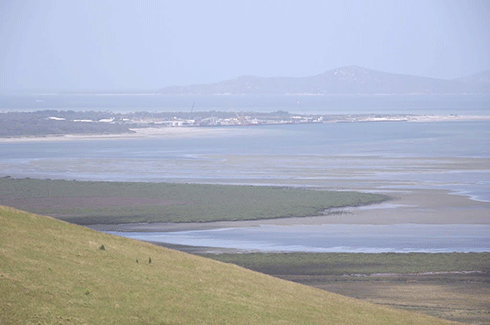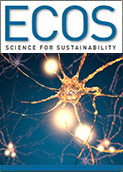
|
Published: 13 May 2014
Scientists work with fishing industry to keep an eye on Corner Inlet
Commercial fishers are teaming up with scientists from the University of Melbourne and the West Gippsland Catchment Management Authority to monitor and improve the health of the marine environment at Corner Inlet, Victoria.

|
|
A view over Corner Inlet with Wilsons Promontory in the background: Local fishing families have noticed the dieback of seagrasses and kelp, which provide essential habitat for fishes. Credit:
waterfallman under CC BY-NC-ND 3.0 licence
|
Over the next two years scientists, managers and fishers will work together to map changes to seagrass beds, document algal blooms and identify hotspots of poor environmental health.
‘Fishermen are the natural stewards of these areas – they spend every working day out there observing what’s going on’, said Dr John Ford lead from the University of Melbourne. ‘We would like to get as many local fishermen involved as possible, both commercial and recreational.
‘It is logical to listen to fishers’ experiences and observations, as they can notice changes that we could never pick up in a short scientific survey.’
The project’s coordinators say it is the first collaboration of its kind in Victoria. The work aims to address local concerns over water quality, improve understanding about the changes to marine habitats and ensure the sustainable future of the region’s fishing industry.
‘For the last 25–30 years, the broad-leaf and fine-leaf seagrasses, along with the kelp, have slowly been dying off,’ comments Gary Cripps, a fourth-generation Corner Inlet fisherman. ‘The dieback started from shore areas and now extends out into the Inlet for up to 3–4 km in some places.’
The West Gippsland Catchment Management Authority (WGCMA) has released a water quality improvement plan (WQIP) for Corner Inlet that provides a strategic approach to reducing sediment and nutrients loads.
Michelle Dickson from the WGCMA noted that developing appropriate targets for the WQIP was a challenging task.
‘We require more documented evidence to link water quality conditions and seagrass health. This project will help us collect evidence of the changes that occur in the marine ecosystems over the seasons based on the observations and knowledge of the Corner Inlet fishers.
According to Dr Ford, the project will run over the next two years. ‘If there are any fishermen out there who want their voices heard on this issue, please contact the project team,’ he adds.
The project is funded through the Australian Government's Fisheries Research and Development Corporation (FRDC).
Source: FRDC/The University of Melbourne



